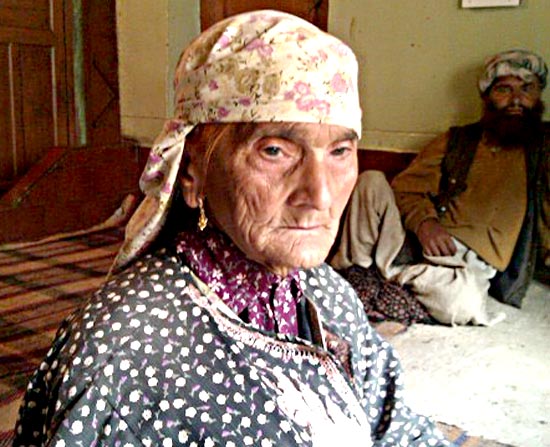The recent Supreme Court judgment on the Pathribal faked encounter case may take all such cases, involving armed forces personnel in crimes against civilians, out of the regular civil justice delivery system. It has already affected the Machil faked encounter case. SAIMA BHAT reports.

The much-awaited verdict of Supreme Court on Pathribal fake encounter case changed the shape of many other cases involving Indian Army and might affect many others in the future. The latest development in the 12 years old case of abduction and murder came when the army said they will go for prosecution in a military court (Court Martial) rather than trial in a civil or criminal court. The fate of five other cases involving army officials hanged in balance till the Supreme Court verdict allowed the army to choose how it would like to try the accused army officials in the Pathribal case.
“There are five more cases in which trail was stopped due to the stay order of Supreme Court but now as the final judgment has come those five cases will also get started again” says Bari Andrabi, Chief Public Prosecutor.
The Supreme Court decision on Pathribal case became an important precedent for other similar cases involving army personnel in human rights violations. It has already has an immediate and direct effect on the Machil fake encounter case in which three youths, Shehzad Ahmad, Riyaz Ahmad and Mohammad Shafi were killed in staged encounter and later branded as foreign militants by 4 RR personnel (Rajput Rifles) on April 30, 2010. They were allegedly lured to Line of Control by an SPO on the pretext of getting them jobs with the army.
The accused army personnel challenged the orders of Sessions Court Baramulla and Chief Judicial Magistrate (CJM) Sopore. The two subordinate courts held that civil courts have the jurisdiction to proceed against the accused army men in the case. But then the case was shifted to High Court where Army counsels D S Thakur and Karnail Sigh Wazir challenged the power of the civil courts to try the accused soldiers.
Mian Abdul Qayoom, representing the victims’ families tried to convince the court for trying the accused army officials, but apparently in view of the Supreme Court decision on the Pathribal case, Justice Hasnian Masoodi adjudged otherwise on July 4, 2012. Now the Machil case will follow. The army will hold a court martial for its personnel involved in the fake encounter and the case against accused police personnel will be heard in the civil criminal court separately.
The other trials that were stopped due to the stay order of Supreme Court are expected to start soon. The five cases involving army and state police came up in 2007 when unidentified graves were exhumed in district Ganderbal. The then Chief Minister, Ghulam Nabi Azad, ordered a probe and special investigation team (SIT) headed by then DIG, Farooq Ahmad was set up to probe.
The two of the exhumed bodies were sent for DNA testing. Tests were conducted by Chandigarh’s Forensic Science Laboratory (FSL) who confirmed the identity of one of the missing, Abdul Rehman Padder, picked up by SOG in Srinagar. With the body of Abdul Rehman Padder were found some clues like a SIM card and brief case of another missing, Nazir Ahmad Deka.
These clues became the basis for other cases and with the result some more graves were dug up and the bodies of Nazir Ahmad Deka, who was arrested from Lal Chowk, Srinagar and then killed on March13, 2006 was found on February 2, 2007. The next day three more bodies were exhumed including those of Molvi Showkat, who was arrested in Zadibal and then killed on October 5, 2006, Ali Mohammad Padder, detained from Kangan and then killed on March 4, 2006 and Ghulam Nabi Wani, detained from Sumbal and then killed on March 13, 2006.
All of the five were labeled as ‘Foreign militants from Multan’ by State Police and Army. State police even awarded its three policemen from Ganderbal – SSP Hans Raj Parihar, DSP Bahadur Ram, ASI Farooq Ahmad Guddoo with of Rs 1,30,000. But later, when bodies were exhumed these bodies turned out to be of civilians. Eleven security personnel including the award winning three JKP officials were tried. They were found guilty.
Once the SIT completed its probe, CJM Sopore started court proceedings. Colonel, Vikram and a Major of the army, three troopers and five SOG men were charged for killing Molvi Showkat and then the same Colonel, three of his men (Naveen Yadav, Hawaldar Mohan Das and Naik Manoj Singh) and five SOG personnel-















